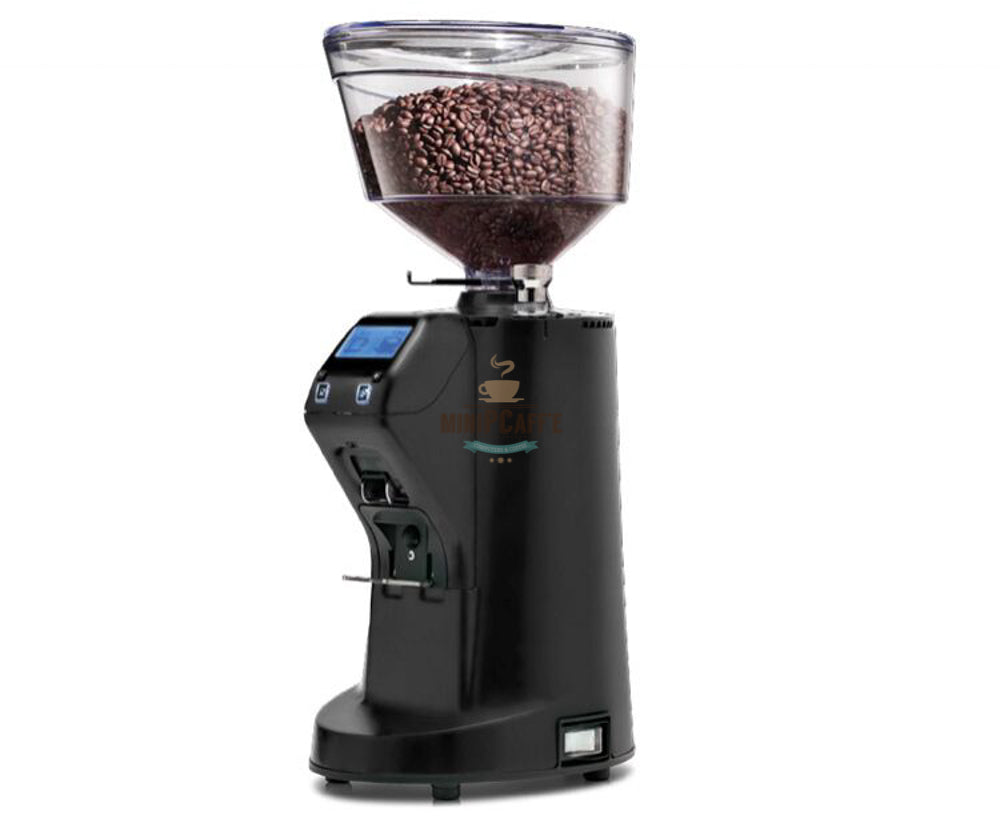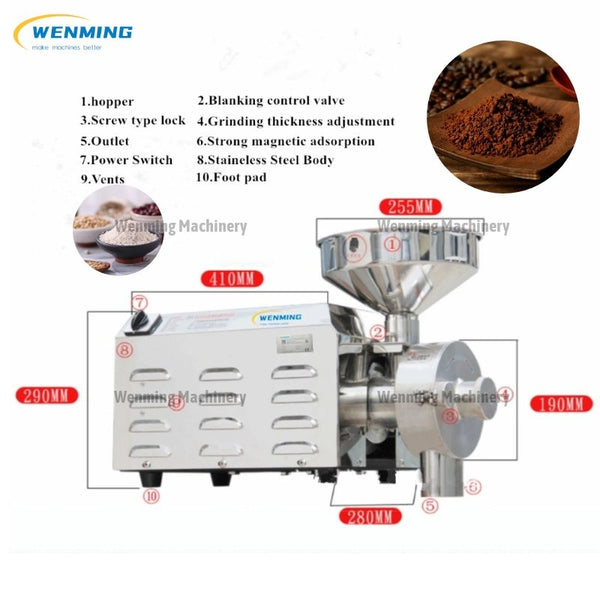How to Select the Perfect Industrial Coffee Grinder for Your Company
Selecting the optimal industrial coffee mill for your business is a complex decision that calls for mindful consideration of a number of vital aspects. In addition, understanding the numerous types of grinders offered can dramatically affect your operational efficiency.
Assess Your Grinding Needs
When selecting an industrial coffee mill, one need to first assess their grinding requirements to make certain ideal performance and consistency. This initial assessment includes understanding the volume of coffee to be processed daily, in addition to the preferred work size for different brewing techniques. A high-capacity grinder may be required for services serving big quantities of coffee, while smaller operations might find an extra portable version enough.
Additionally, it is important to take into consideration the sorts of coffee beans being utilized, as different beans may call for details grinding strategies to accomplish the most effective flavor account. Oily beans could require a grinder designed to take care of such features without clumping or overheating.
Another crucial factor is the called for grind consistency. Specialty coffee organizations usually require precise work dimensions to enhance removal and flavor, making it vital to pick a mill that can supply uniform results. Ultimately, examining the available space and electric needs will certainly aid in picking a mill that fits perfectly right into your functional workflow. By thoroughly evaluating these variables, companies can make enlightened decisions that line up with their coffee grinding demands, inevitably leading to a superior product and completely satisfied customers.
Understand Grinder Types
Comprehending the numerous kinds of industrial coffee grinders is essential for making a notified choice that fulfills details functional needs. There are primarily two categories of grinders: blade grinders and burr grinders.
Blade grinders utilize spinning blades to chop the coffee beans, leading to an irregular work dimension - Industrial Coffee Grinder. While they might be extra budget friendly, they are often not suitable for commercial applications where precision is essential
On the other hand, burr grinders provide a more uniform work by squashing the beans in between 2 surface areas. They can be additional classified right into flat burr and conical burr grinders. Apartment burr mills use a constant grind size and are usually favored for espresso prep work, while cone-shaped burr grinders are flexible and can deal with a series of brew approaches, from coffee to French press.
When choosing a grinder, consider the particular demands of your organization, including desired work consistency, manufacturing quantity, and the sorts of coffee drinks you intend to provide - Industrial Coffee Grinder. Each grinder kind has its advantages and limitations, so understanding these subtleties allows informed decision-making that straightens with operational objectives
Evaluate Work Size Uniformity
Accomplishing grind dimension consistency is essential for generating high-grade coffee, as variations in particle dimension can considerably influence extraction and taste. When choosing a commercial coffee grinder, it is essential to review exactly how well the equipment preserves harmony in grind dimension across various batches. Irregular work sizes can bring about unequal removal, resulting in a mug that may taste weak or overly bitter.
To assess grind dimension consistency, take into consideration grinders with features such as adjustable work settings and high-grade burrs. Burr grinders, specifically, read the full info here master generating uniform fragment dimensions compared to blade mills. The product and shape of the burrs play an important duty, with stainless steel and ceramic alternatives offering sturdiness and accuracy.

Take Into Consideration Production Capacity
In the hectic world of coffee manufacturing, taking into consideration production capability is critical for services intending to fulfill need without giving up quality. The manufacturing capacity of an industrial coffee grinder directly influences a business's capability to meet orders successfully, take care of supply, and react to fluctuating market patterns.
When analyzing manufacturing ability, it is crucial to evaluate the mill's output price, commonly gauged in extra pounds per hour. This dimension ought to line up with your company's forecasted sales volume and development targets. A coffee shop with a high turn over might need a grinder that can refine a number of hundred pounds additional hints daily, while a smaller sized procedure might be adequate with a reduced capability design.
Additionally, take into consideration the kind of coffee being processed. Various beans and blends might impact grinding rate and effectiveness, necessitating a mill capable of taking care of varied production requirements. It's also worth considering the grinder's capacity to preserve regular high quality under high result conditions, as any kind of changes can influence the final item.
Eventually, picking a grinder that matches your organization's production ability will guarantee you remain receptive and affordable to client assumptions.

Budget and Upkeep Elements
When examining the right commercial coffee mill, maintenance and spending plan factors play a considerable duty in the total decision-making process,. A preliminary financial investment in a premium mill can yield long-lasting advantages, yet it's important to develop a clear spending plan that lines up with your service's operational demands. Take into consideration both the acquisition price and potential functional prices, such as power consumption and replacement parts.
Industrial coffee mills call for routine upkeep to ensure optimum efficiency and durability. Examine the producer's recommendations for upkeep, consisting of cleaning schedules and components substitute, as these will affect lasting functional costs.

Buying a grinder that is durable yet very easy to preserve can conserve money in time. While lower-priced alternatives may be tempting, they might Industrial Coffee Grinder incur greater upkeep expenses and reduced effectiveness. Ultimately, stabilizing initial expenses with long-term maintenance and functional effectiveness will certainly direct you to the most effective option for your business's coffee grinding requirements.
Verdict
Choosing the excellent industrial coffee mill necessitates a comprehensive analysis of grinding needs, mill types, grind dimension consistency, manufacturing ability, and budgetary factors to consider. By focusing on these elements, organizations can ensure the purchase of a trusted, efficient grinder that fulfills specific operational demands. An appropriate mill not only improves the high quality of the coffee generated but likewise adds to the total success and profitability of the enterprise. Long-lasting efficiency and upkeep ease must stay central to the decision-making procedure.
Specialized coffee services commonly require exact grind sizes to enhance extraction and taste, making it essential to pick a mill that can provide uniform results. Apartment burr mills provide a constant grind dimension and are commonly preferred for coffee preparation, while conical burr mills are functional and can manage a variety of brew approaches, from coffee to French press.
When choosing an industrial coffee mill, it is vital to examine how well the machine keeps harmony in grind dimension throughout different sets. Burr grinders, in particular, succeed in creating uniform fragment sizes compared to blade mills.Selecting the ideal commercial coffee grinder demands a complete assessment of grinding needs, mill types, grind dimension consistency, manufacturing capacity, and financial considerations.